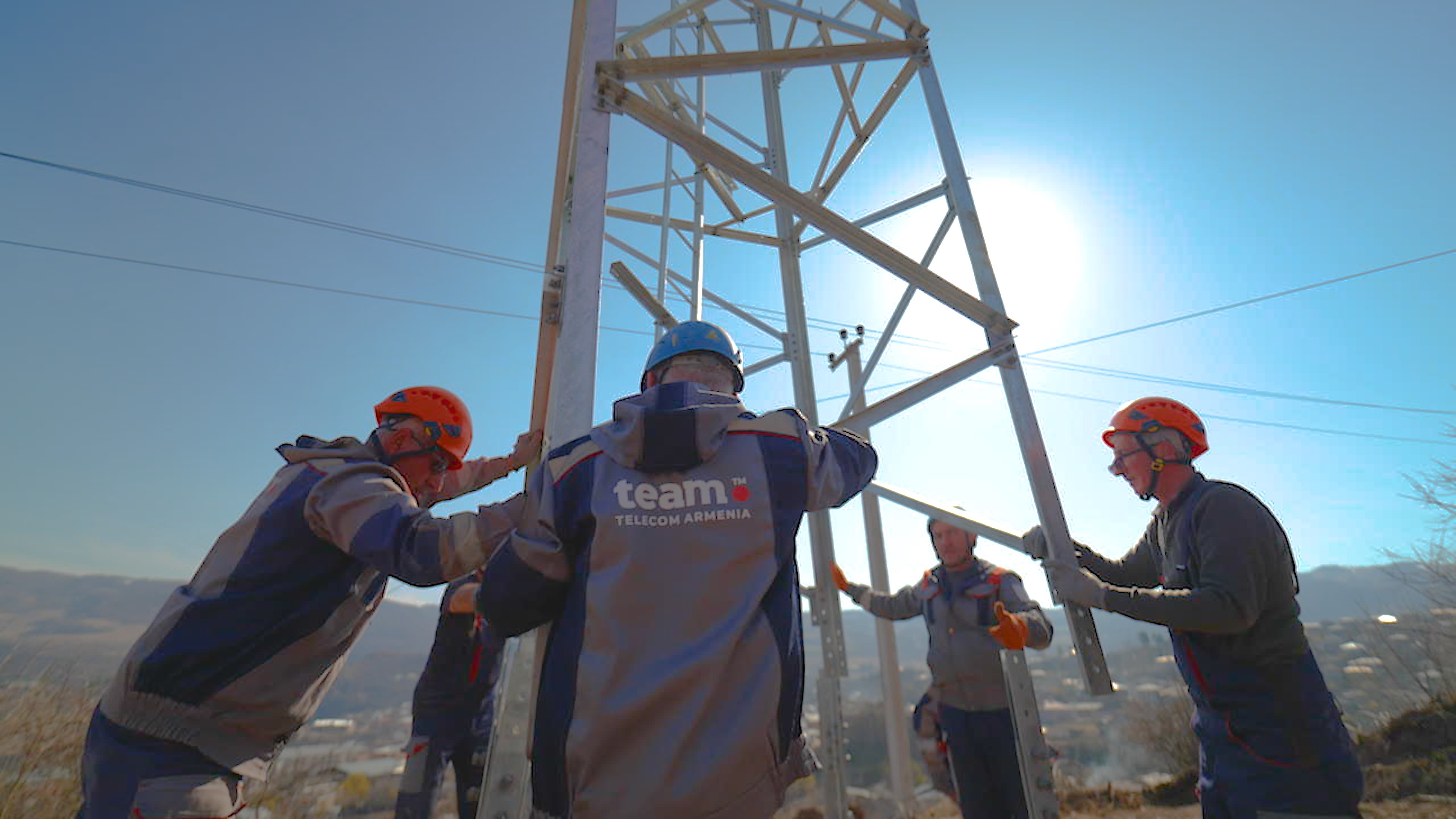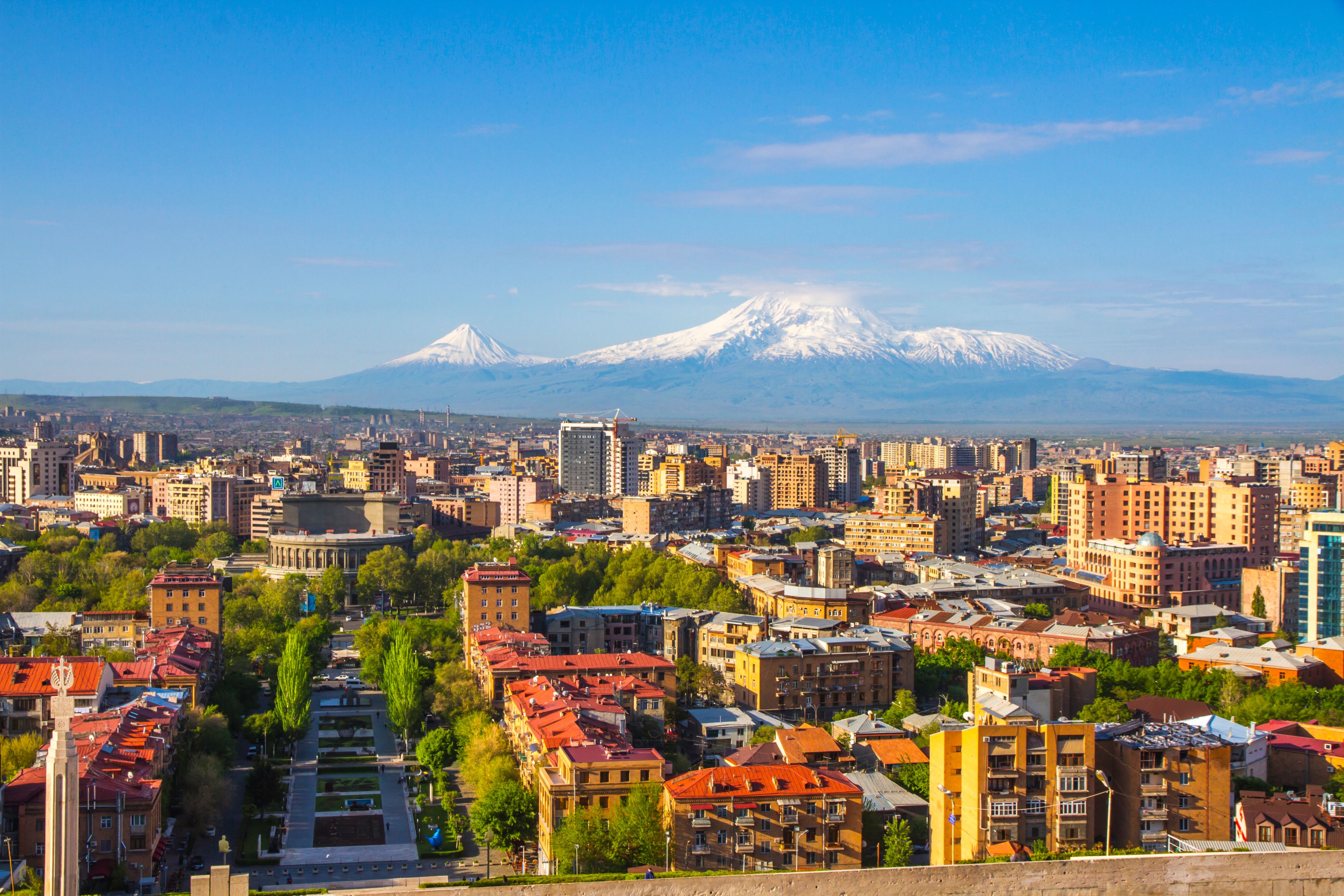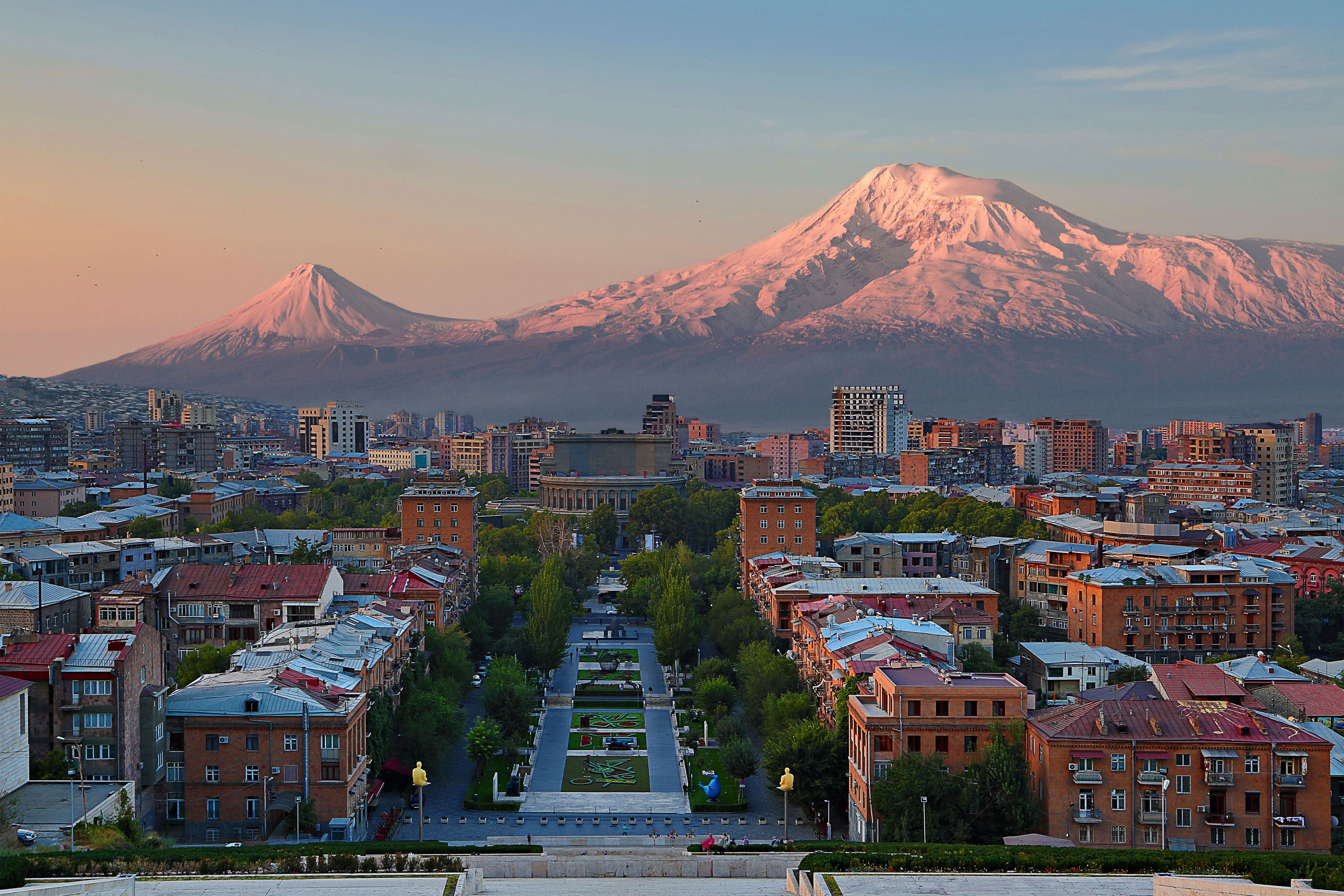Pioneering a Sustainable Digital Transformation in Armenia
The country’s first sustainability-linked bond, anchored by IFC, is supporting a leading telecom player in boosting digital services and cutting emissions.

Five years ago, Team Telecom Armenia’s 4G network covered just four out of approximately 1,000 villages in Armenia.
The majority were still covered by 2G, or second generation, services—useful for basic communication needs like voice calls and text messaging but too slow for the modern, data-intensive applications and services that help drive productivity.
Today, thanks to the company’s installation of new fiber optics technology and modern mobile stations, more than 300 of these villages are covered by 4G. Within the next year, according to Hayk Yesayan, Team Telecom Armenia’s Co-Founder and General Director, 80 percent of these areas will be covered, with some parts also covered by 5G.
For the company, an IFC partner that recently issued Armenia’s first ever sustainability-linked bond, harnessing the power of new technology is also a key part of its sustainability journey.
"4G networks are many times more energy efficient than older 2G networks," says Yesayan. "We aim to be the first operator in the country to fully transition from 2G to more modern networks and technologies. By reducing our electricity consumption and reallocating frequencies, we are enhancing both our fiber-optic and mobile networks, and driving growth sustainably."
Photo by Team Telecom Armenia
Photo by Team Telecom Armenia
"Our goal is not only to be the country’s leading telecom operator but also the most innovative—not just on paper, but through real advancements in technology and sustainability. The more sustainable we are, the more independent we become. This is our vision."
This historic building is the headquarters of Team Telecom Armenia. Photo by Team Telecom Armenia.
This historic building is the headquarters of Team Telecom Armenia. Photo by Team Telecom Armenia.
“We want to ensure coverage everywhere—not just where it’s profitable,” adds company Co-Founder and Board Chair Alexandr Yesayan. “Every village and every corner of Armenia should have equal access to broadband. This is not just a short-term business strategy; it’s long-term thinking, with sustainability at its core.”
Photo by Team Telecom Armenia
Photo by Team Telecom Armenia
Boosting Armenia’s digital infrastructure

Team Telecom Armenia’s commitment to sustainability and digital innovation is just one of the reasons why the company was an obvious choice for IFC’s first investment in Armenia’s telecoms sector —and the broader South Caucasus region—three years ago.
In 2022, in the wake of the COVID-19 pandemic, IFC provided $20 million to help the company fund a capital investment plan to kickstart its modernization program. This included expanding the 4G mobile network and rolling out a fiber access network to bolster services for both individual subscribers and business clients.
Last year, Team Telecom Armenia became Armenia’s first telecom company to conduct an initial public offering, with its shares now listed on the Armenian Stock Exchange.
But while Armenia’s telecom sector has made significant strides in recent years, there is still much room for improvement in terms of infrastructure, service quality, and market penetration. Both mobile and fixed broadband speeds are slower than regional averages.
Connectivity is particularly limited in rural areas and among lower income groups, with 41 percent of the poor adult population lacking quality fixed broadband services. That hinders their access to vital information, economic opportunities, and essential services.
Armenian firms also lag their European peers when it comes to digital adoption, according to a new World Bank report. Over 75 percent of the country’s firms lack access to high-speed internet, a key enabler of digital transformation, while over 60 percent have yet to adopt modern technologies, stifling productivity growth.
While many European countries and global leaders are already rolling out and expanding their 5G networks, the adoption of 5G technology in Armenia is still in its early stages. To close existing digital infrastructure gaps, the country needs to invest an estimated $450 – $600 million.
One of the challenges companies like Team Telecom Armenia face in emerging markets like Armenia, however, is accessing the ongoing funding they need to grow and expand – largely because of underdeveloped capital markets.
Mobile antenna installation: Installing a 4G mobile antenna in the Tavush region of Armenia. Photo by Team Telecom Armenia.
Mobile antenna installation: Installing a 4G mobile antenna in the Tavush region of Armenia. Photo by Team Telecom Armenia.
Mobile antenna installation: Installing a 4G mobile antenna in the Tavush region of Armenia. Photo by Team Telecom Armenia.
Mobile antenna installation: Installing a 4G mobile antenna in the Tavush region of Armenia. Photo by Team Telecom Armenia.
Strengthening – and greening – domestic capital markets

For IFC, the largest global development institution focused on the private sector in emerging markets, strengthening capital markets—where people and businesses can buy and sell financial assets like stocks and bonds—is crucial. These markets help foster economic stability and job creation by providing businesses with access to the capital they need for expansion and innovation.
In many emerging markets like Armenia, however, capital markets remain underdeveloped—for reasons ranging from poor financial literacy to still-nascent regulatory environments.
Unlocking funding for green, sustainable and inclusive development through innovative financial instruments is a particular priority for IFC. In the last fiscal year alone, IFC invested $5.4 billion in green, social, and sustainability-linked bonds and mobilized an additional $2.28 billion globally.
Supporting Team Telecom Armenia’s issuance in December of the country’s first sustainability-linked bond was thus a win-win. These innovative funding instruments tie financial terms to specific sustainability targets such as reducing emissions, incentivizing issuers and attracting a broader investor base.
As well as anchoring the landmark $75 million sustainability-linked bond issuance with a $13.5 million contribution, IFC provided support in developing and validating its sustainability framework and structuring the bond terms.
“IFC has been a pioneer in promoting sustainable finance globally, providing advice and capacity building programs, and promoting best practices and standards,” says Fuphan Chou, IFC Manager, Infrastructure and Energy, Europe. "So, we were delighted to participate in this landmark bond issuance, which will not only help Team Telecom Armenia expand critical digital services but also drive significant environmental impact.”
Under the bond’s sustainability framework, the company will be incentivized to reduce its greenhouse gas emissions by 40 percent by November 1, 2029, versus its 2023 baseline. IFC is also advising the company on enhancing its cybersecurity resilience and supporting efforts to increase the share of women in its workforce.
The funds generated from the issuance will help Team Telecom Armenia further expand both 4G and 5G services, and fiber-to-the-home broadband coverage, with plans to extend coverage to an additional 300,000 mobile data customers and connect 90,000 more homes to high-speed internet by 2029.
In the poorer rural areas that are often the last to be reached, the company’s 4G+ coverage will increase from 74 percent to 96 percent, and fiber-to-the-home penetration will expand from 14 percent to 35 percent.
For Yesayan, the issuance of the country’s first sustainability-linked bond sends an important message to the market—and the region—about the importance of being a sustainable business.
“We are excited that we took the first step here and are showing others that this is the right thing to do,” he says. “I think other companies will see the success of this issuance and start to implement it in their portfolios as well."
“It also helps us increase our efficiency which means we are decreasing our prices and having more attractive pricing. It is helping us to grow our brand as a telecom company—and showing others that sustainability is good for business.”
Published in April 2025













